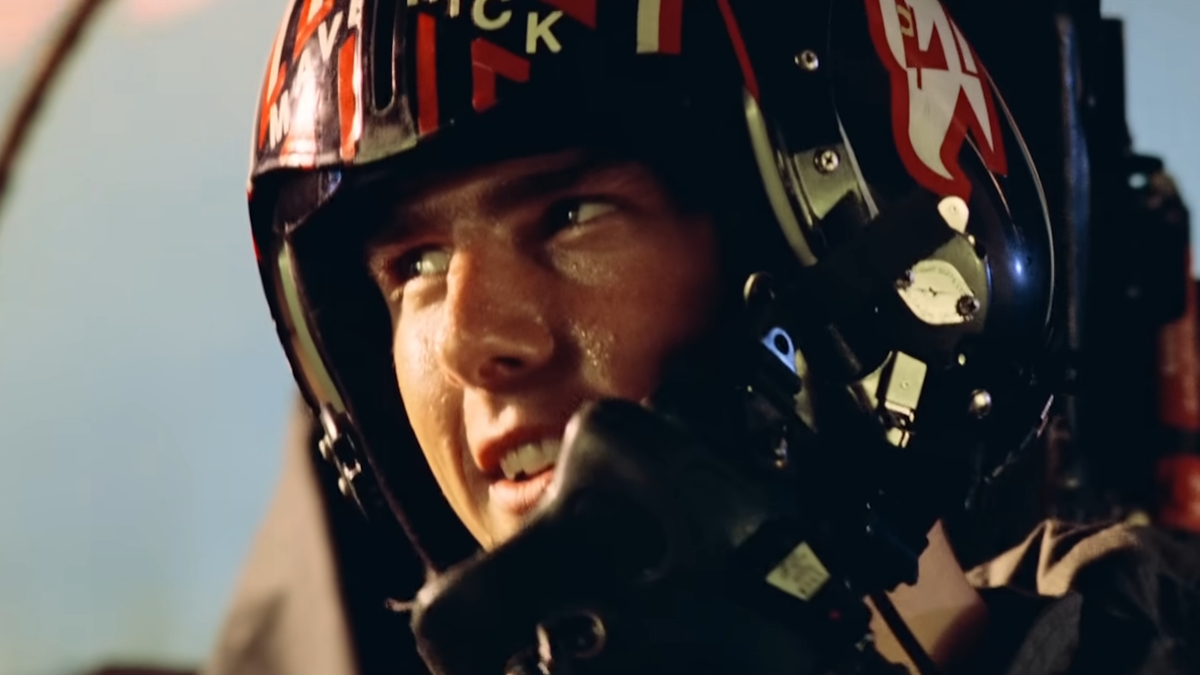
In the long history of movies, perhaps no decade is as consequential or important as the 1980s. But in an era when unforgettable films opened in theaters practically every weekend, which of them actually deserve recognition as the greatest of them all?
During the two-term presidency of Ronald Reagan, the 1980s became a time characterized by rampant consumerism, materialism, and globalization via rapidly evolving technology. Movies of the time similarly took on many different facets. While adults still enjoyed grown-up pictures about topics relevant to them, from the nuances of dating in their 30s and 40s to generational trauma wrought by the Vietnam War, younger audiences began to see more exciting movies cater to their tastes. Sometimes, wires crossed and movies ostensibly made for adults found a huge audience in kids and teens.
The 1980s were a time when production budgets got bigger, the stars became more famous, violence became mainstream, and practically overnight audiences of every age could enjoy the same movies. “Blockbuster,” while coined in 1954, became a commonplace phrase as event releases broke box-office records.
In a decade crammed full of great movies, only a few can earn proper recognition as the best movies ever made. Here are the 32 best movies of the 1980s.
32. Platoon (1986)
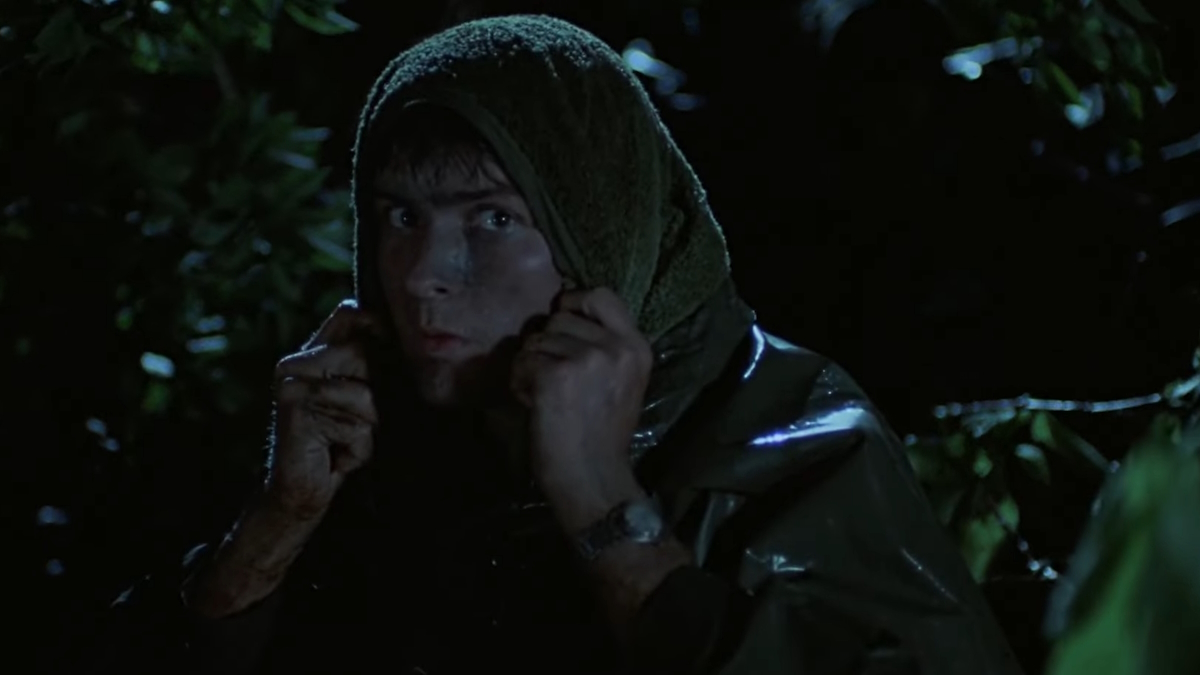
Few directors embody the 1980s like Oliver Stone. Not only was he involved in scripting classics like Conan the Barbarian and Scarface, he also helmed 1987’s Wall Street – a picture emblematic of the decade’s insatiable greed – and an unconnected trilogy of movies that explored the lingering trauma of Vietnam. The first of them is 1986’s Platoon, a hard-hitting drama about a volunteer for the U.S. Army (played by Charlie Sheen) who spends his time with the 25th Infantry Division near the Cambodian border wrestling with the ethics of the very war they’re engaged in. The movie was inspired by Stone’s own service in Vietnam, and that shows in the movie’s attention to detail and unflinching portrait of war’s lasting psychological wounds.
31. Moonstruck (1987)
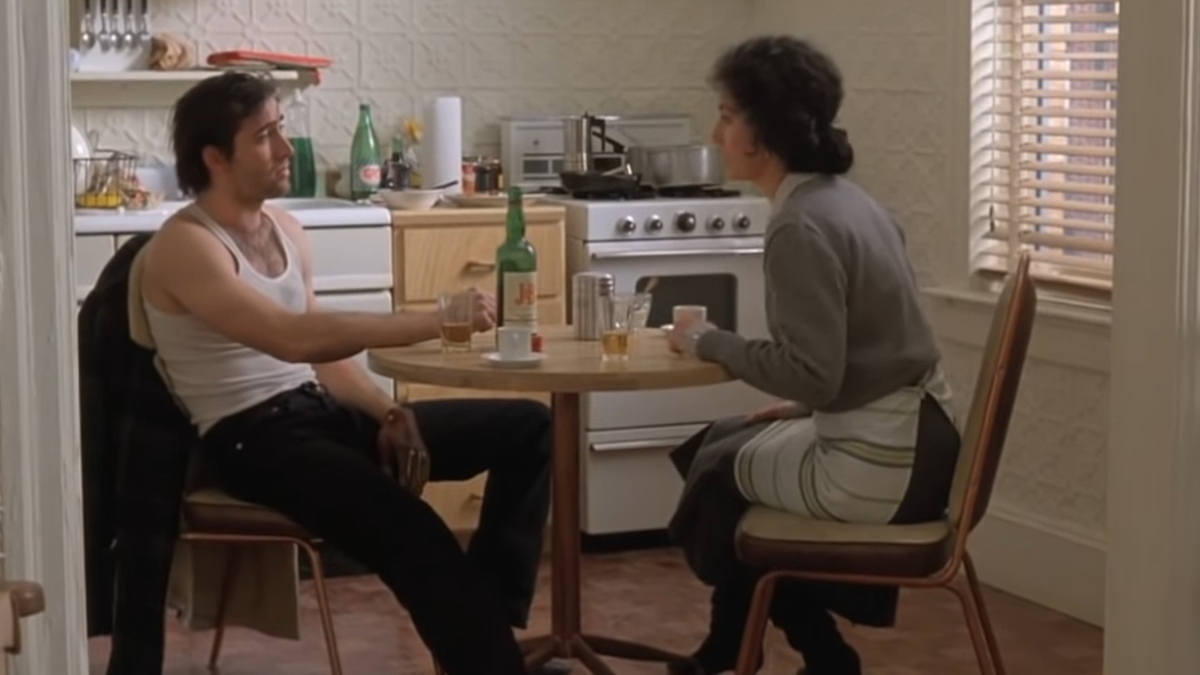
Directed by Norman Jewison and written by John Patrick Shanley, Cher and Nicolas Cage co-star in this delightfully mad-cap romantic comedy about an Italian-American widow who falls in love with the hot-tempered younger brother of her fiancé. While Cher was already a star when Moonstruck hit, the film also launched Nicolas Cage to the stratosphere. Between his sculpted arms, haggard visage, and low-key chaotic presence, Cage showed the world he could shine as bright as the Moon itself. Anything else he’s done since, from stealing the Declaration of Independence to swapping faces with John Travolta, has been because he made us lovestruck in Moonstruck.
30. Predator (1987)
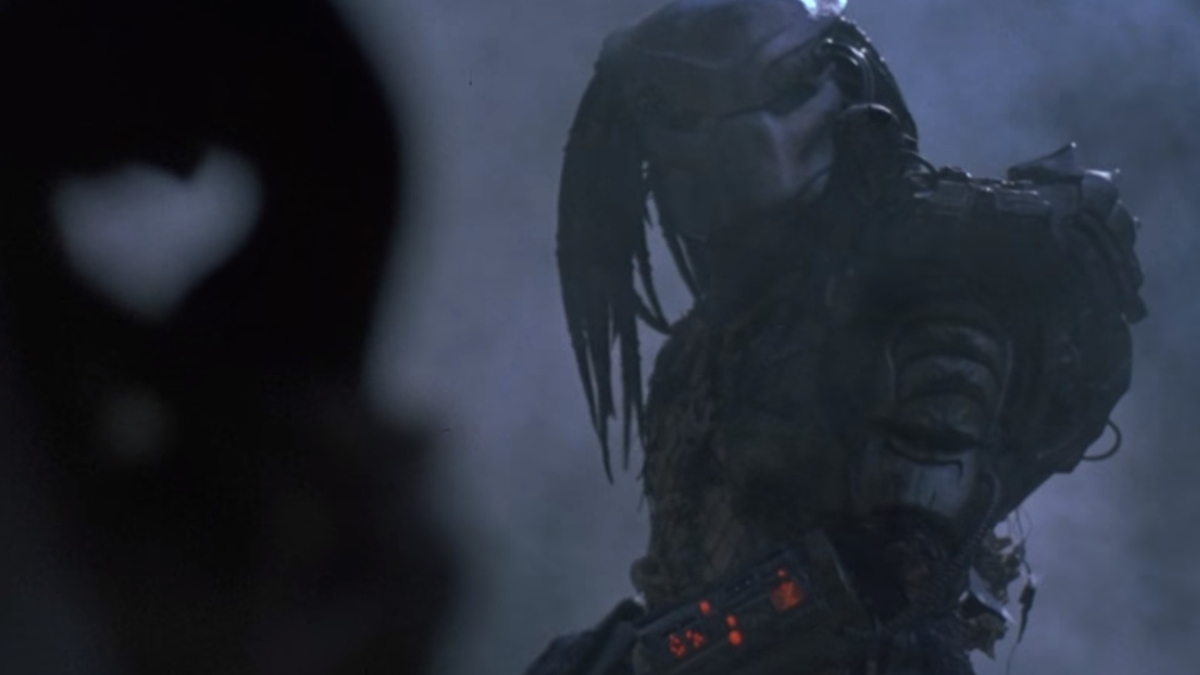
After blowing up in the 1982 fantasy epic Conan the Barbarian, Arnold Schwarzenegger flexed his action hero muscles in Predator, a sci-fi thriller and war epic all in one. Directed by John McTiernan and featuring an unforgettable musical motif by Alan Silvestri, Predator follows an elite military rescue team who venture into the South American jungle to rescue a diplomatic hostage only to find themselves stalked by an otherworldly menace. In hindsight it’s hard to say who is the bigger star, Schwarzenegger or the now-iconic “Predator” alien. Either way, Predator is indisputably one of the most rollicking action movies of all time.
29. Bloodsport (1988)
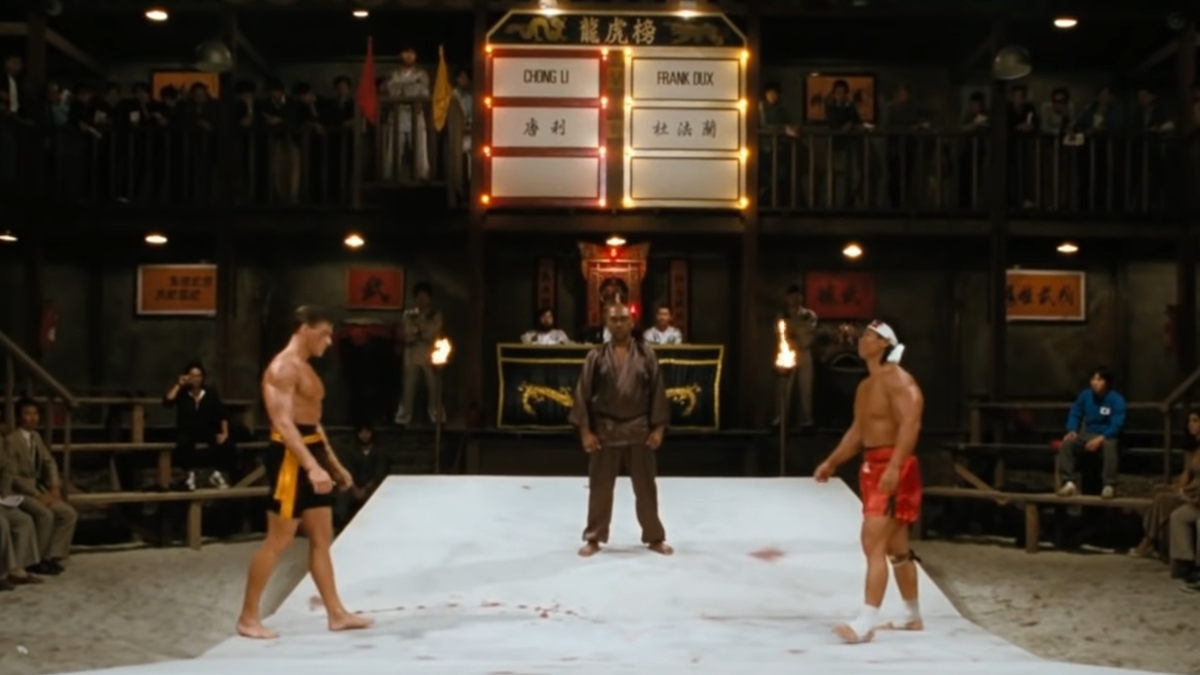
The rise and untimely death of Bruce Lee influenced a generation to take up martial arts, among them Belgian action star Jean Claude Van Damme. In Van Newt Arnold’s Bloodsport, Van Damme plays a U.S. Army Captain and ninjutsu master who enters a deadly underground martial arts tournament in Hong Kong. While claims the movie is based on a true story are lofty at best, it doesn’t stop Bloodsport from being a martial arts classic and arguably the best in the post-Bruce Lee era. (Yes, even more so than Kickboxer, a remarkably similar movie released a year later.) Between the impeccable vibes of its soundtrack by Paul Hertzog and Van Damme’s face when he’s blinded by sand, Bloodsport inspires us all to chant, “Kumite!”
28. Say Anything (1989)
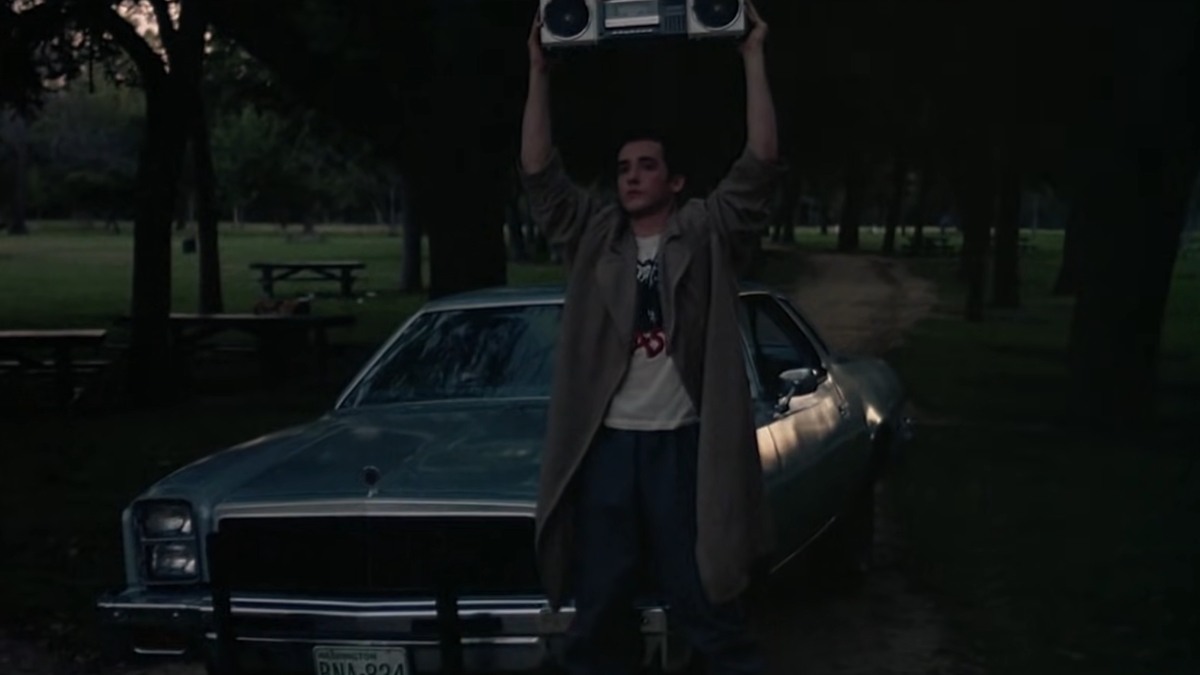
The quintessential teen rom-com about dating way out of your league, John Cusack and Ione Skye co-star in Cameron Crowe’s directorial debut Say Anything, about a slacker who strikes up a romance with the class valedictorian after they graduate high school. Under the careful direction of Crowe, Say Anything is a funny and warm snapshot of that most precious transition between high school and college. The unforgettable scene where Lloyd holds up his boombox (playing Peter Gabriel’s “In Your Eyes”) outside Diane’s bedroom is like the 20th century version of Romeo calling out to Juliet under the trellis; it’s both genuine and corny, a reminder that love can make us do foolish things.
27. Excalibur (1981)
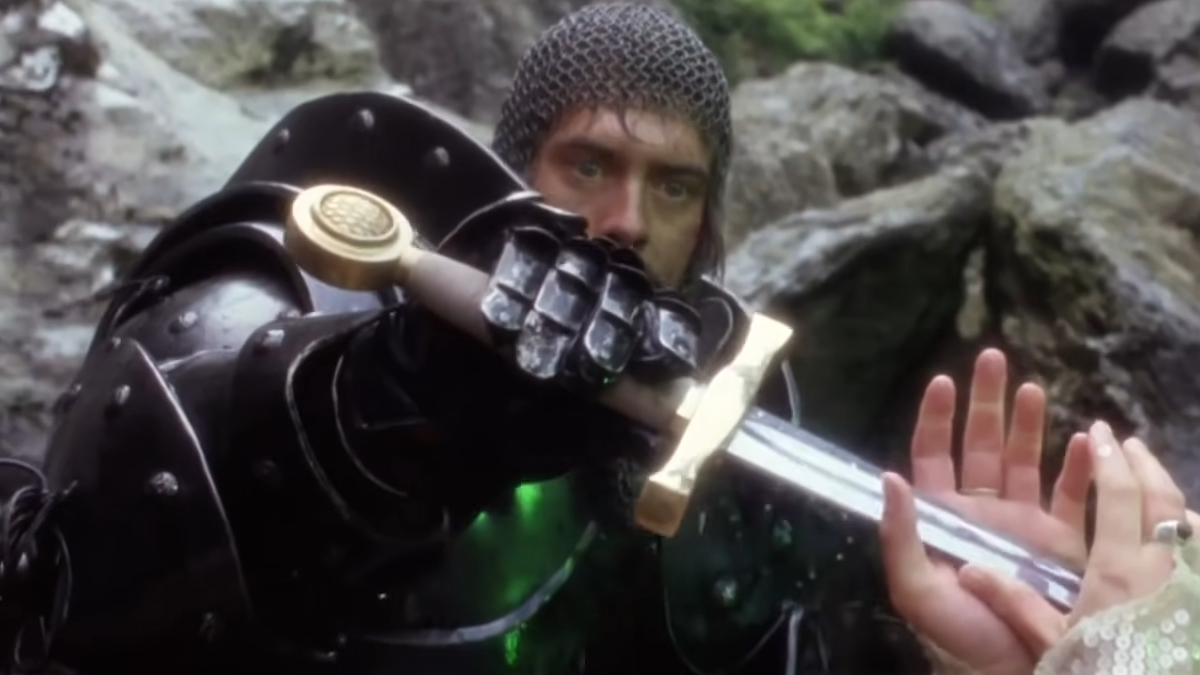
Arguably the definitive medieval tale of all time, the legend of King Arthur and the Knights of the Round Table, received the definitive film adaptation in 1981 in John Boorman’s Excalibur. Starring Nigel Terry as Arthur and Helen Mirren as Morgana, plus notable talents like Liam Neeson and Patrick Stewart early in their careers, Excalibur essentially plays out like a biopic that begins with Arthur’s unholy conception all the way to his ascension as king and death in battle. More interesting for its alluring gothic atmosphere than its skillful filmmaking, Excalibur is nevertheless worthy as a classic that influenced a generation of artists, storytellers, and video game creators.
26. The Breakfast Club (1985)

If there is one filmmaker whose voice encapsulated young adult anxieties of the 1980s, it’s the late John Hughes who was responsible for YA classics like Sixteen Candles, Pretty in Pink, Weird Science, and of course Ferris Bueller’s Day Off. While Ferris Bueller is a cinematic touchstone in its own right, Hughes’ 1985 ensemble drama The Breakfast Club might be more important with its foundational premise of contrasting personalities who bond over the course of an unforgettable Saturday in detention. If that premise sounds familiar, it’s because The Breakfast Club started it, and arguably did it best.
25. Batman (1989)
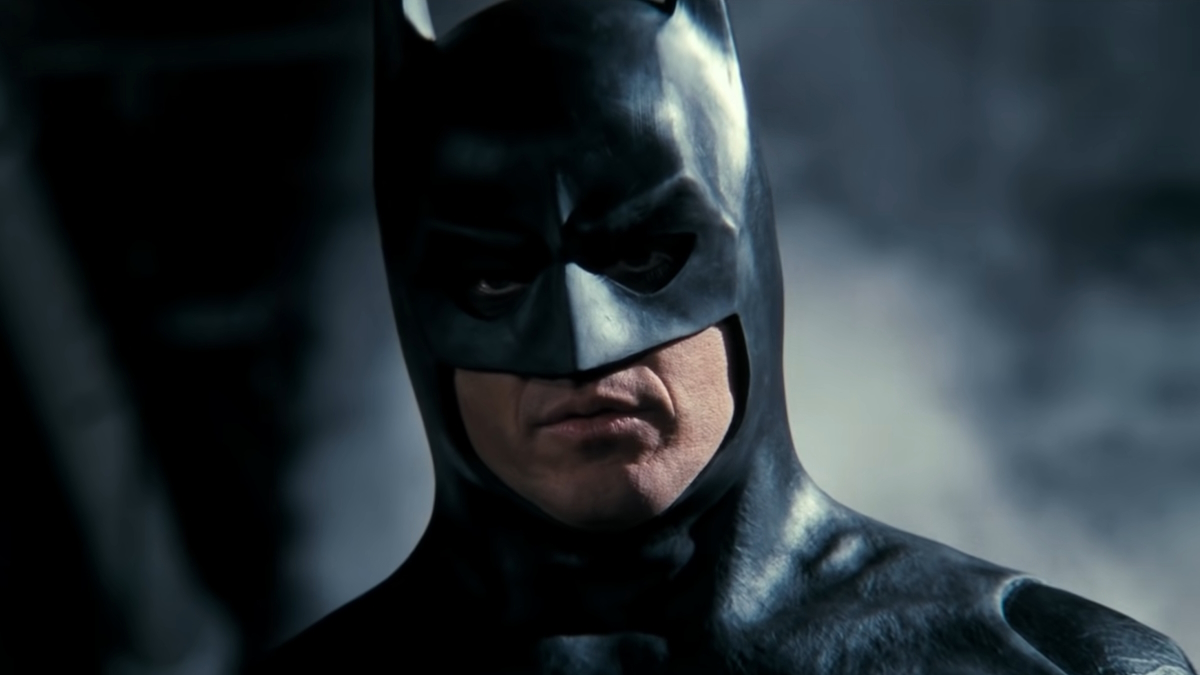
Foreshadowing the ascendancy of superheroes as the 21st century’s preeminent movie genre, Tim Burton’s Batman is a perfect marriage of singular directorial vision – with Burton’s notably gothic overtones inspired by German expressionism – and mainstream commercial appeal.
Starring Michael Keaton, Kim Basinger, and Jack Nicholson, the movie follows, who else, Batman in his fight against Gotham City’s newest menace, the Joker. Indicative of the 1980s right down to the fact Prince made the album, Batman foretold the coming transformation of movies as merchandising machines. Batman was a movie with just enough striking darkness to appeal to the older crowd, but hardly repelled any chances for it to spawn Happy Meal toys.
24. Somewhere in Time (1980)
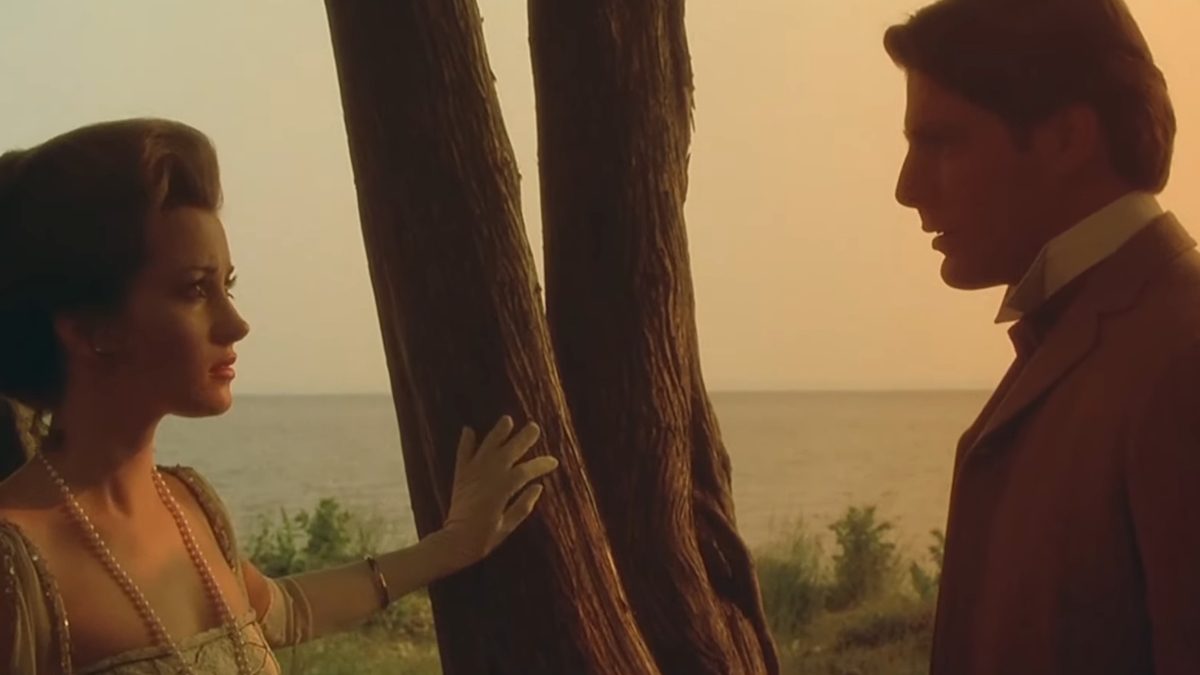
From French director Jeannot Szwarc, this swoon-worthy romance stars Christopher Reeve as a Chicago playwright who finds a way to travel back in time to 1912, where he falls in love with a stage actress (Jane Seymour). Before other time travel romances like The Time Traveler’s Wife, The Lake House, and Kate & Leopold, there was Somewhere in Time. With its moving score by John Barry and powerhouse leads in both Reeve and Seymour, Somewhere in Time wrote the playbook on what it means to feel so far away from your destined soulmate. While critically panned upon release, Somewhere in Time maintains a devout following of fans who gather to watch the movie every October at the movie’s primary setting, the Grand Hotel in Michigan.
23. Ghostbusters (1984)

Who you gonna call? For all its special effects wizardry and epic battles against an ancient evil, Ghostbusters is at its core a comedy about going into business with your buddies. Conceived by writer and star Dan Aykroyd (whose real-life family are renowned as paranormal experts), Ghostbusters has become a generational touchstone thanks to its A-plus performances by Bill Murray, Harold Ramis, Aykroyd himself – all playing scientists pushed out of academia – and Ernie Hudson as the straight-faced man who joins them. Along with Sigourney Weaver and Rick Moranis, Ghostbusters is another major ‘80s movie that was made for adults, being a New York-centric comedy about dating, work, and keeping business afloat, but won over legions of children with its funny ghosts, giant marshmallow monsters, and colorful lasers.
22. Glory (1989)
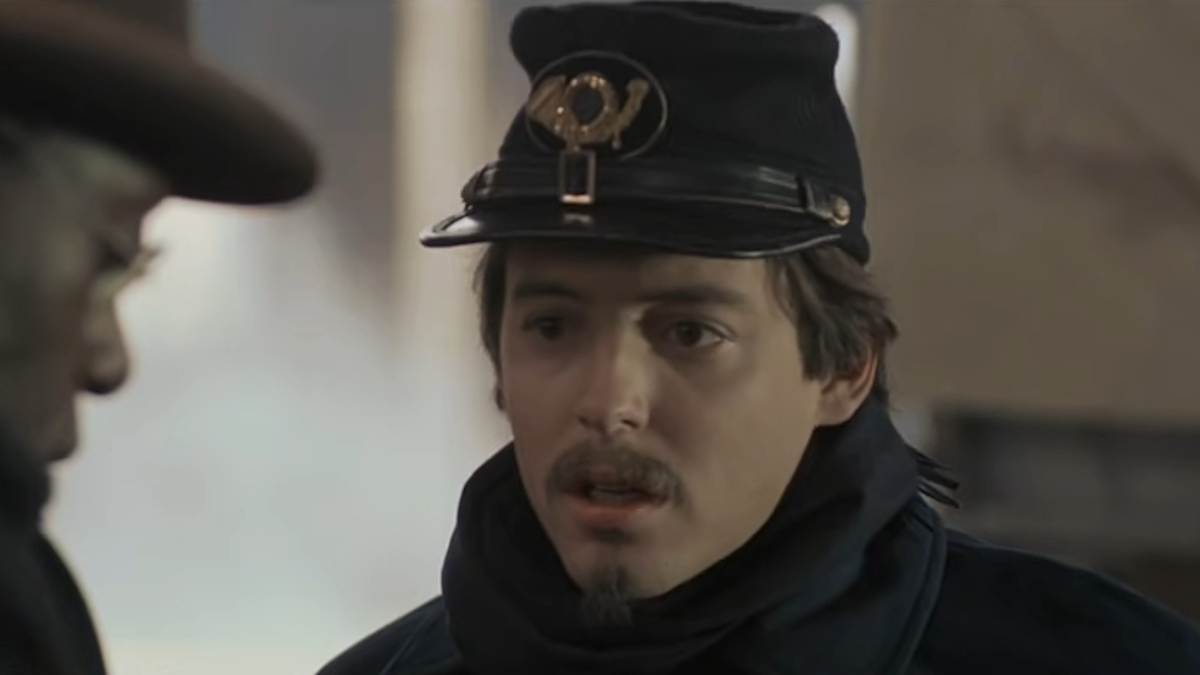
Edward Zwick’s moving historical epic Glory is an exemplary exploration of racism and patriotism in its story of the 54th Massachusetts Infantry Regiment, one of the first African-American regiments of the Union Army in the American Civil War. Memorably starring Matthew Broderick, Denzel Washington, Cary Elwes, and Morgan Freeman, Glory is a fully realized picture that entertains as much as it educates through its beautiful cinematography and heartbreaking story about unrepaid sacrifice. Since its release in 1989, Glory remains one of the best movies ever made about one of the bloodiest wars ever waged in American history.
21. A Nightmare on Elm Street (1984)
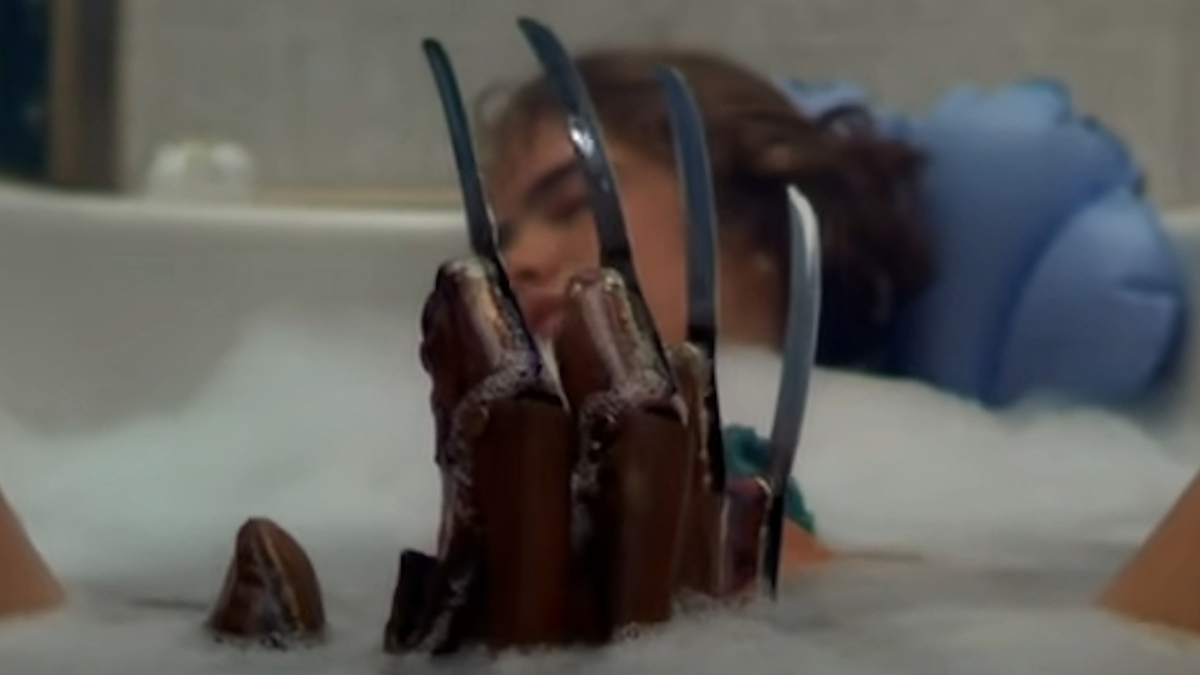
As the slasher genre found new life in the 1970s, Wes Craven carried the ball throughout the 1980s, most notably with his unforgettable film A Nightmare on Elm Street. The first in a franchise that cemented New Line as a powerhouse studio, Wes Craven’s picture follows suburban teenager Nancy (Heather Langenkamp) who is haunted by ultra-real dreams of Freddy Krueger (Robert Englund), a predatory killer with a clawed glove. The movie was notably inspired by real-life stories Craven heard about Cambodian refugees who died in their sleep. With a vivant Robert Englund as Freddy, A Nightmare on Elm Street is an effective supernatural horror flick as well as a black comedy, meaning it’s always good for a scream.
20. Stand By Me (1986)
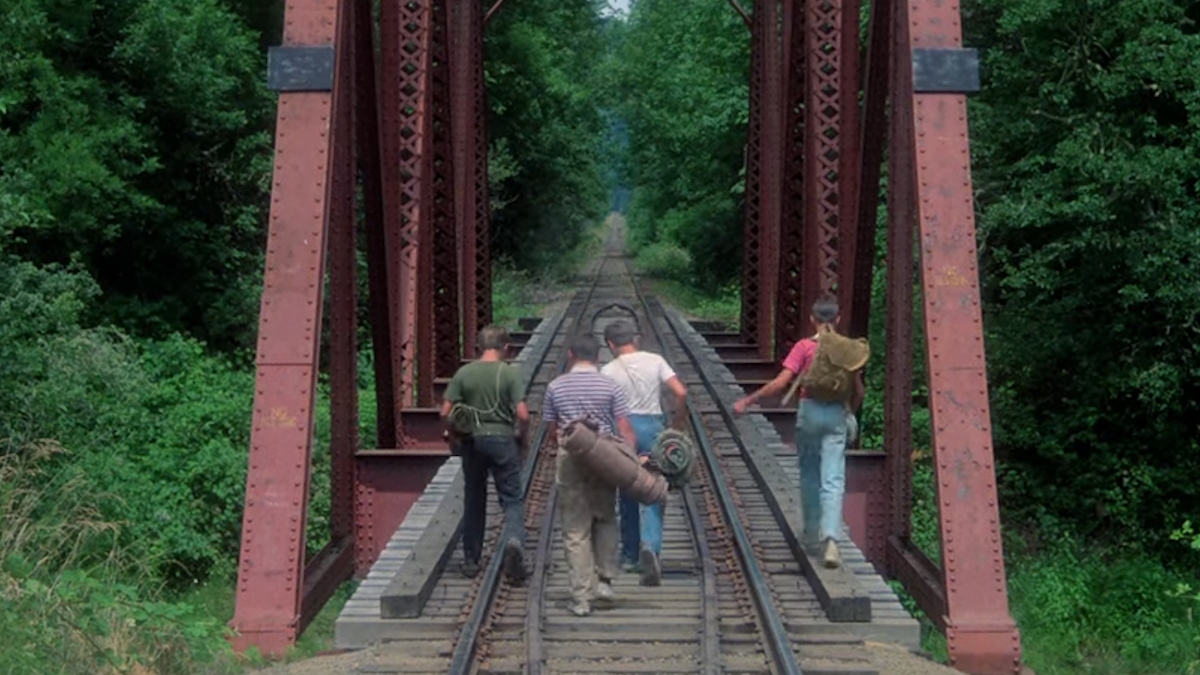
Based on the Stephen King novella (itself titled after Ben E. King’s enduring song about sentimentality), Rob Reiner’s Stand By Me follows a group of Oregonian boys who go on a hike and stumble upon a dead body. With its memorable cast of Wil Wheaton, River Phoenix, Corey Feldman, and Jerry O’Connell, Reiner’s film is a timeless and harrowing metaphor for the end of innocence, as children grow up and find themselves abruptly in the face of unspeakable evil. Its abundant sunshine betrays the darkness the world hides, and no movie explores that dissonance more elegantly than Stand By Me.
19. When Harry Met Sally… (1989)
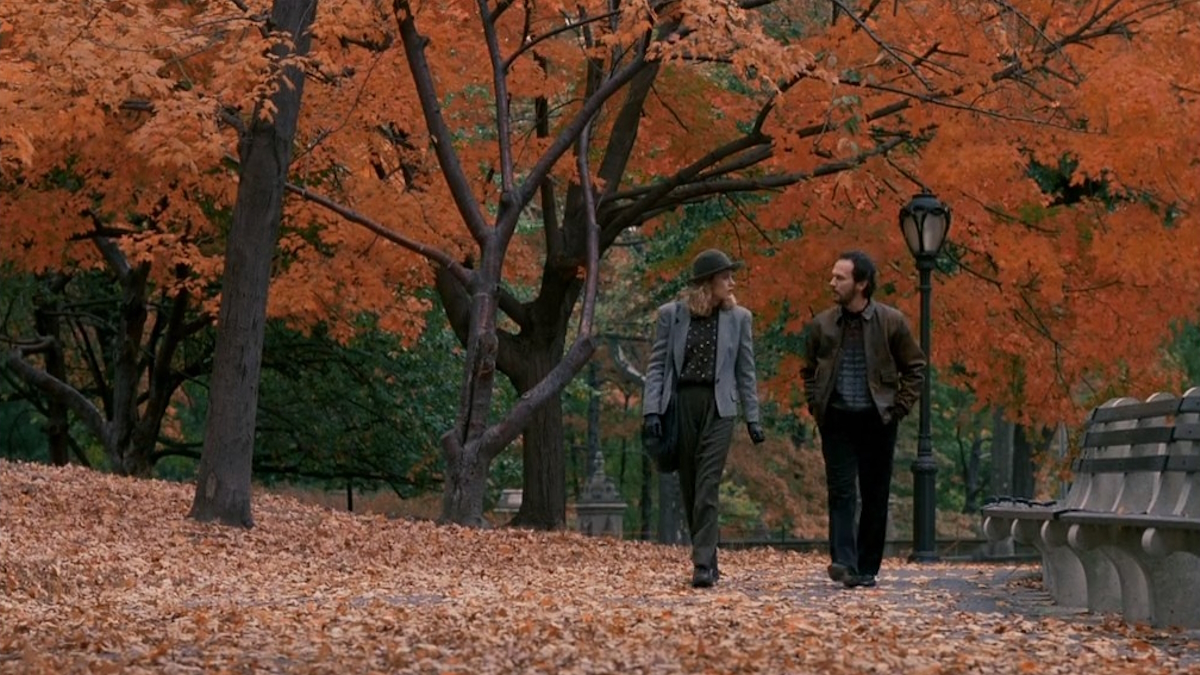
Directed by Rob Reiner and written by the effervescent Nora Ephron, When Harry Met Sally is the ultimate romantic comedy that we’ve all found ourselves living in at least once. Billy Crystal and Meg Ryan co-star as polar opposite people who, over time, rediscover each other and slowly discover strong feelings but find themselves stricken with fear over the permanency of it. A perennial favorite around autumn time, this everlasting comedy still feels insightful as modern dating becomes increasingly and perhaps unnecessarily complicated. Fun fact: The iconic scene in Katz’s Delicatessen was improvised between Crystal, Ryan, and Ephron, as a way to solve the problem of the movie’s uneven focus on Crystal’s character. May we all get to have what she’s having.
18. Rocky III (1982)
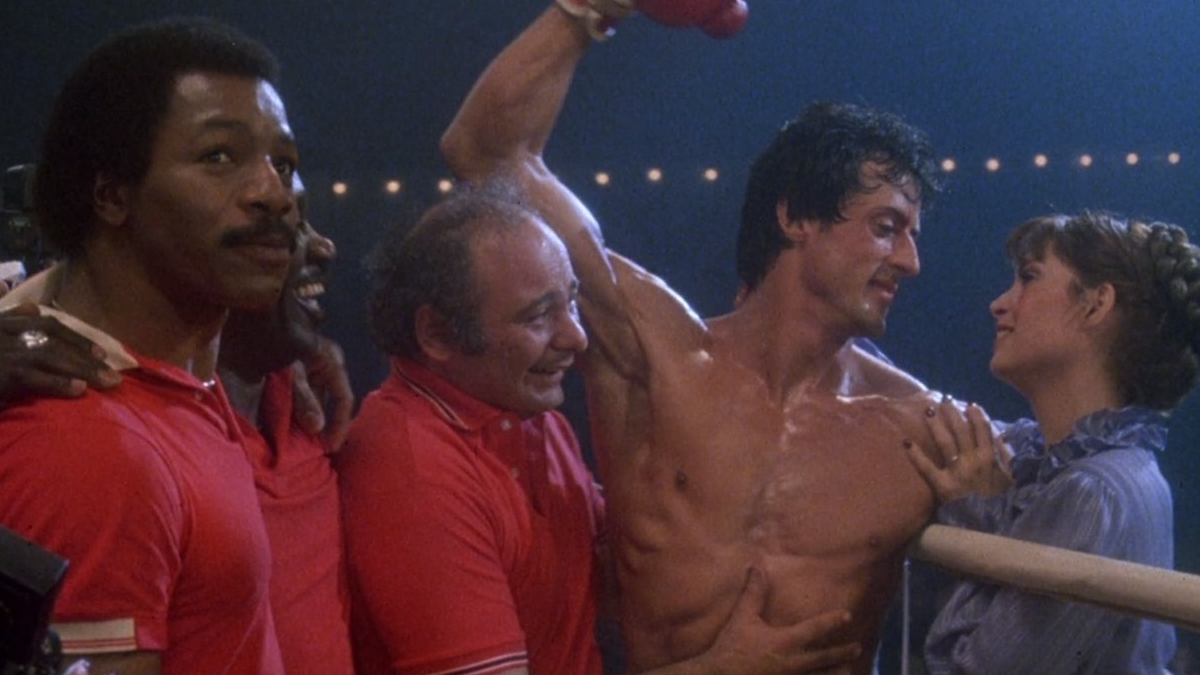
Oh sure, Rocky IV gets all the attention, with its story of eternal underdog Rocky (Sylvester Stallone) in a buzz-worthy bout against Russian dragon Ivan Drago (Dolph Lundgren). But 1982’s Rocky III is a more complete movie, one that not only stands tall as a possible end to Rocky’s story but as a touching movie about sportsmanship, brotherhood, and reconciliation. With Rocky Balboa riding his success to the moon, the Philly pugilist finds himself challenged by the formidable Clubber Lang (Mr. T), which forces Rocky to team with his old rival Apollo (Carl Weathers) to become the ultimate fighter he’s meant to be. It’s the movie that introduced “Eye of the Tiger” to our workout playlists, and its climax is still inspiring without ever verging on cartoonish.
17. Blue Velvet (1986)
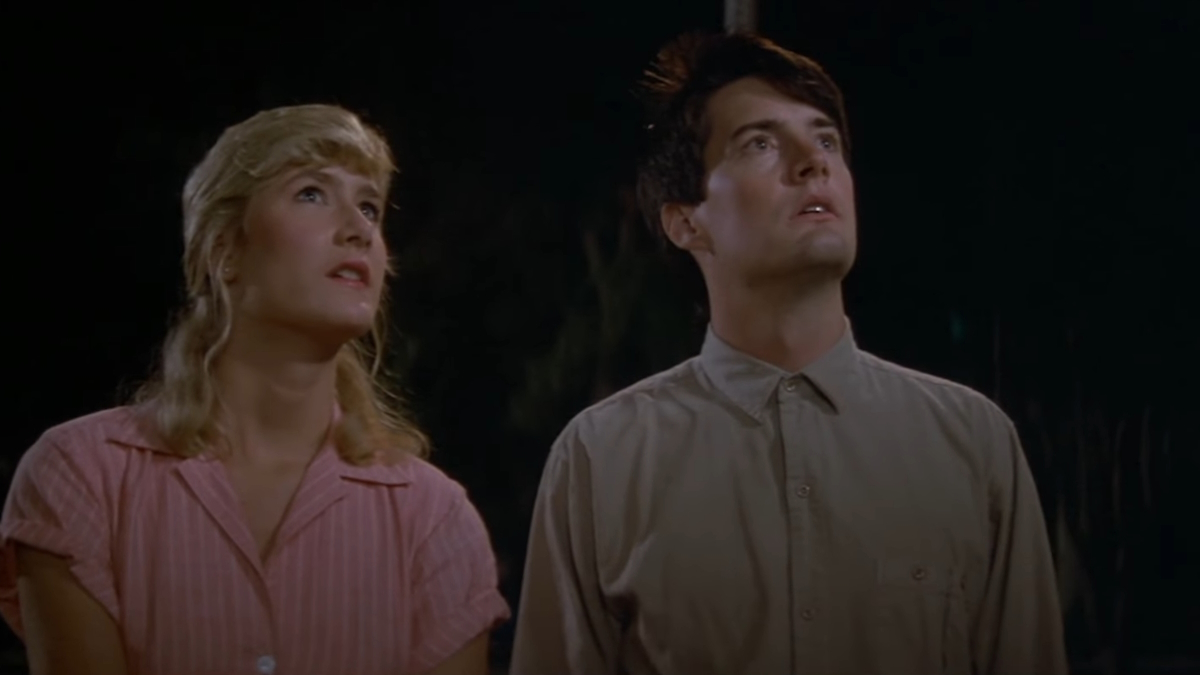
Before WandaVision, David Lynch revealed the darkness beneath manicured suburbia in his neo-noir thriller Blue Velvet. Kyle MacLachlan stars as a college student who returns home to North Carolina where he finds a severed human ear, which kicks off a strange investigation into a criminal conspiracy involving a beautiful but haunted lounge singer (Isabella Rossellini). Named after Bobby Vinton’s rendition of the song “Blue Velvet” and inspired by a traumatic childhood incident of Lynch’s where he witnessed a naked woman walk down his neighborhood at night, Blue Velvet is an enchanting and mystifying thriller that befuddles all who look deep into its caverns.
16. Raiders of the Lost Ark (1981)

Steven Spielberg’s homage to pulp serial adventures set the gold standard for blockbusters for years to come. Starring Harrison Ford and the effervescent Karen Allen (as Marion Ravenwood), Raiders of the Lost Ark tells of an adventurous archaeologist and college professor, Dr. Indiana Jones, who trades fists with Nazis over the long lost Ark of the Covenant. An undisputed blockbuster characterized by exquisite direction and a real sense of adventure, Raiders of the Lost Ark spawned one of the ‘80s biggest film series. But nothing outruns the original.
15. Women on the Verge of a Nervous Breakdown (1988)
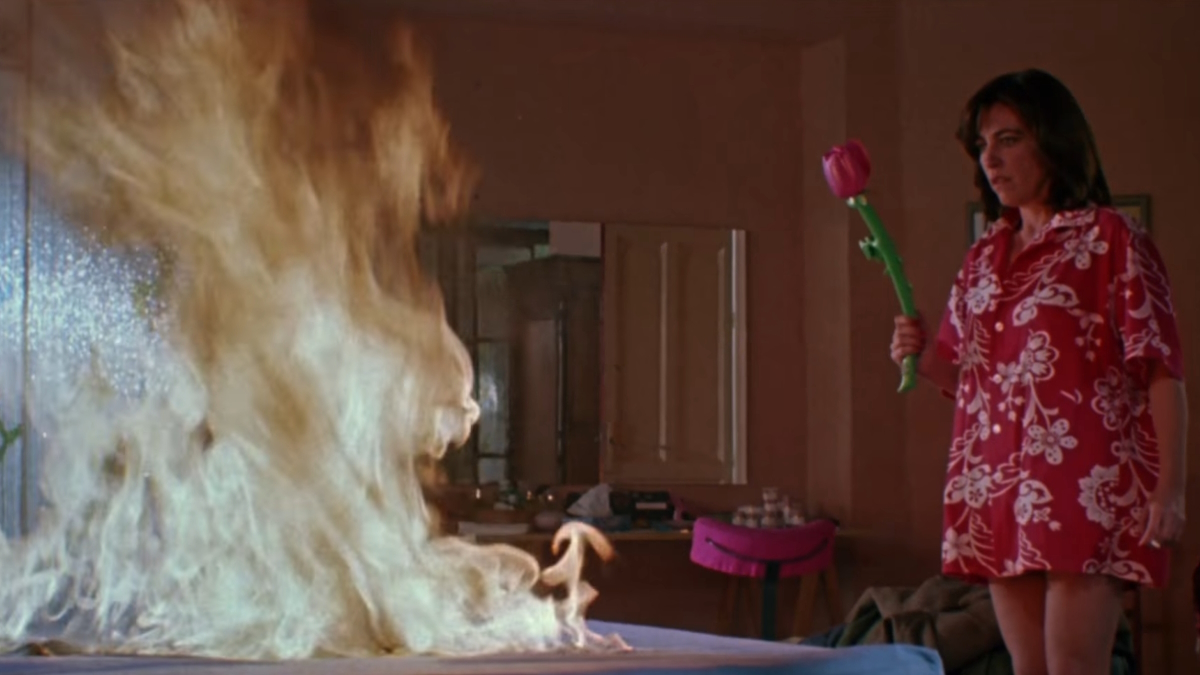
From auteur Pedro Almodovar, Women on the Verge of a Nervous Breakdown is a black comedy classic about a woman named Pepa (played by Carmen Maura) who is abruptly ghosted by her lover. In her search to find out why she’s suddenly alone, she discovers a cavalcade of characters who are all more connected than they could have expected. Also starring Antonio Banderas and Rossy de Palma, Women on the Verge of a Nervous Breakdown is a vibrant and irreverent comedy about totally losing it, which no doubt transcends all language barriers.
14. Streets of Fire (1984)

Billed as a “rock and roll fable” and living up to the very spirit of that idea, Streets of Fire is a triumphant film that lights up the rain-soaked roads of its fictional city of Richmond. From director Walter Hill and starring Michael Pare, Diane Lane, and Willem Dafoe, Streets of Fire drags audiences into its imaginary fever dream of 1950s rockabilly and 1980s grime. With the streets overrun by nefarious killers, roaring hot rods, and an original soundtrack that makes you want to look forward and never look back, Streets of Fire is an invitation to go nowhere fast.
13. Akira (1988)
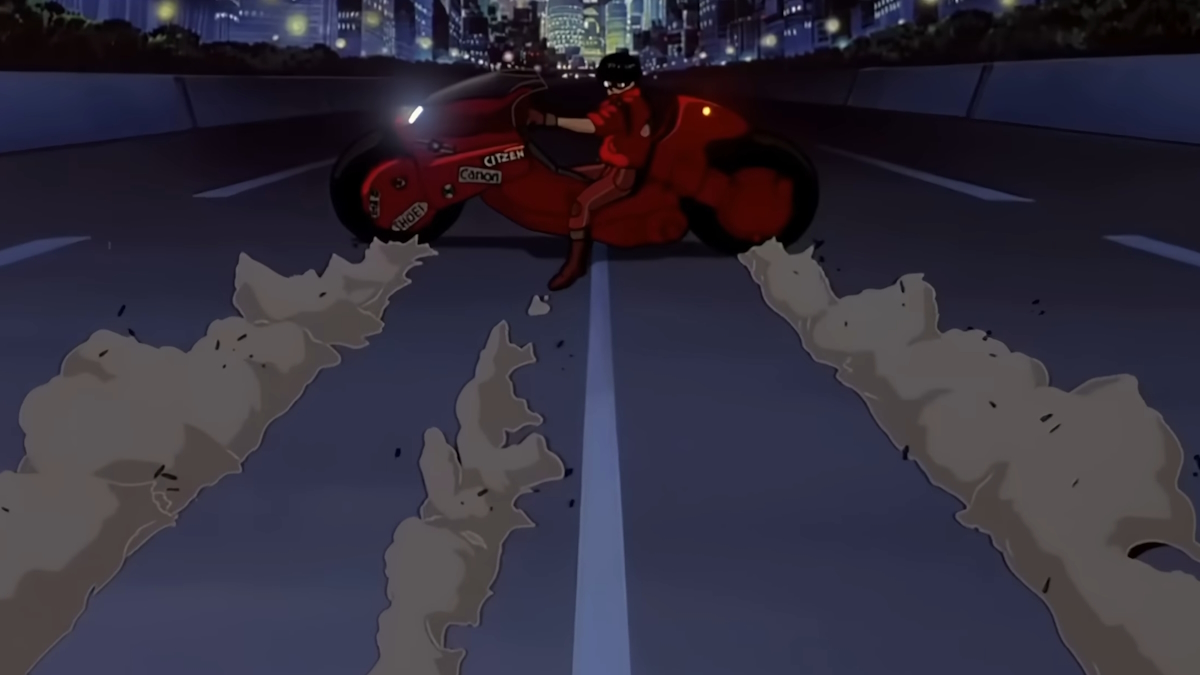
A touchstone of a dystopian sci-fi, Akira from Katsuhiro Otomo adapts Otomo’s manga of the same name about a youth biker gang who ram into a dangerous top-secret government project. Set in a then-futuristic 2019 and in the aftermath of a new world war that left Tokyo in ruin, the glimmering lights of Neo-Tokyo are underscored by the streaks of lights left behind by its reckless youth who run amok on stolen motorcycles. Akira is a lasting vision of Otomo, one that channeled rampant violence caused by Japan’s epidemic of bosozoku gangs but found a universal audience in its provocative portrait of disillusioned, violent youth.
12. The Shining (1980)

A horror classic about the chilling effects of isolation and the inability to maintain sanity, Stanley Kubrick’s horror masterwork The Shining towers over so many other movies that strive and fail to achieve the same heights. Jack Nicholson and Shelley Duvall star in this adaptation of Stephen King’s novel of the same name (which, by the way, King really hates this movie) about a family who take up a job maintaining a Colorado resort in the off-season, only to succumb to a malignant supernatural presence. Even now, no one really knows what the man in the bear costume is all about.
11. Amadeus (1984)
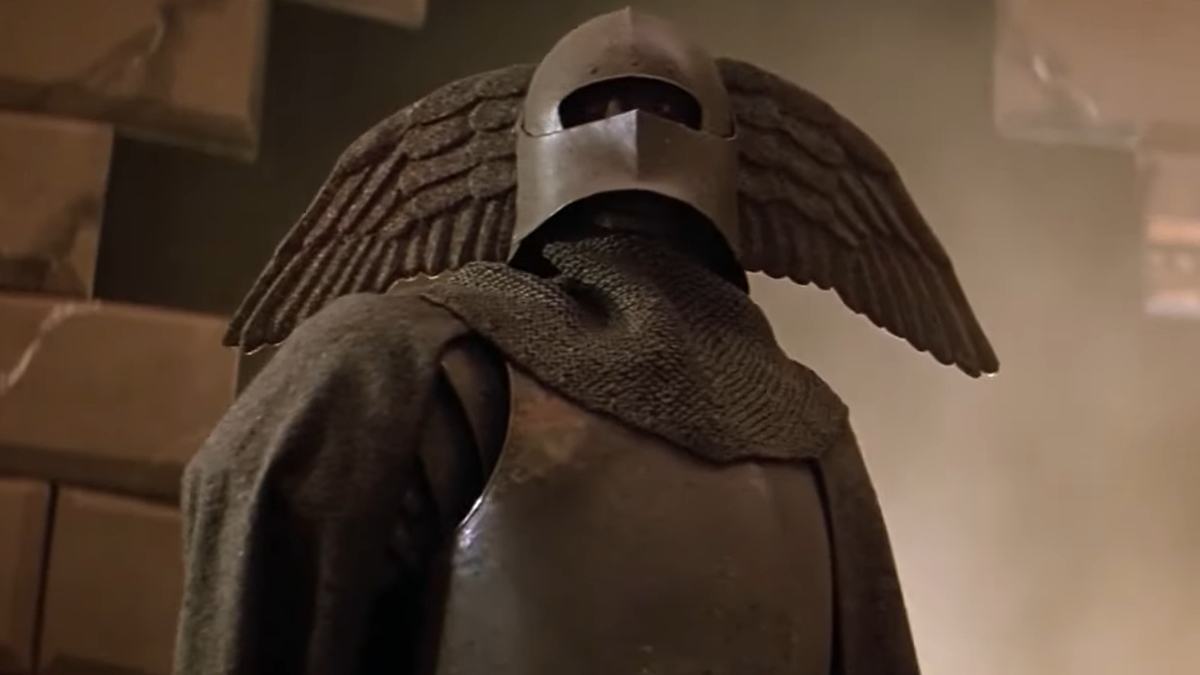
While the personal drama at the heart of Milos Forman’s biographical period epic Amadeus is wildly fictionalized, that doesn’t stop it from being an engaging tale of artistic jealousy and pettiness in the world of classical music. Starring F. Murray Abraham and Tom Hulce, Amadeus follows Wolfgang Amadeus Mozart (Hulce) and his intense rivalry with Italian composer Antonio Salieri (Abraham). In real life, the two were quite civil, maybe even friendly. But Forman’s picture is simply too delectable in how relatable feelings like insecurity and inadequacy can betray even the most decorous environments.
10. Back to the Future (1985)
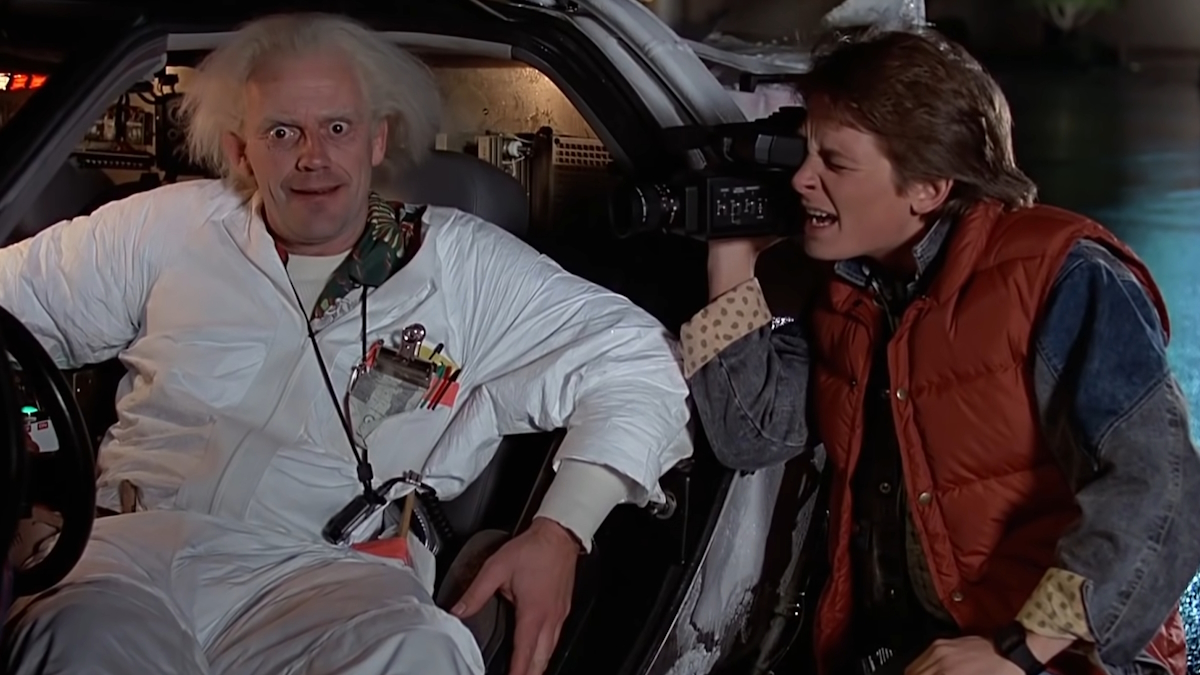
The ultimate time travel adventure, Robert Zemeckis cemented his status as a blockbuster auteur in this sci-fi odyssey where the present meets the past. Michael J. Fox stars as skateboarding teenager Marty McFly, who rides a tricked out DeLorean back in time and must make sure that his parents actually meet and fall in love (without accidentally making his mom fall for him in the first place). Back to the Future simply bleeds iconic iconography and is today celebrated as an inescapable nostalgic ride.
9. Die Hard (1988)

The ultimate action movie and perennial Christmas favorite, Bruce Willis plays John McClane, a tough New York cop who finds himself stuck in a Los Angeles high rise during a terrorist attack. While claims from your cousins that Die Hard is a great Christmas movie come off a bit tiresome, you can’t deny that McClane’s ultimate goal – to reunite with his wife and tell him he’s sorry – lives up to the holiday spirit as a time for family, forgiveness, and new beginnings.
8. Kagemusha (1980)
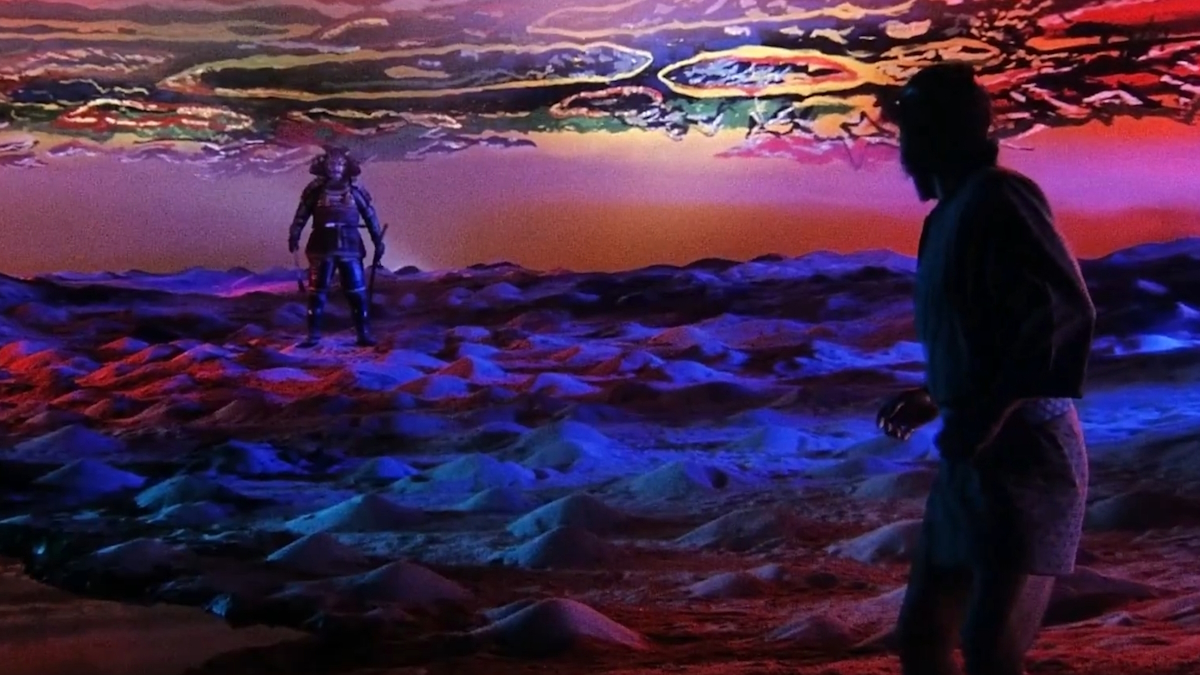
Akira Kurosawa’s unstoppable 1980 classic Kagemusha – meaning “shadow warrior” – follows a lowly criminal whose striking physical resemblance to a dying samurai lord thrusts him into the political spotlight, where he’s forced to act to prevent an invasion by rival clans. As one of Kurosawa’s rare pictures in color, Kagemusha sees the legendary director take full advantage of the tools available to him as a breathtaking picture that splits between illusion and reality.
7. Broadcast News (1987)
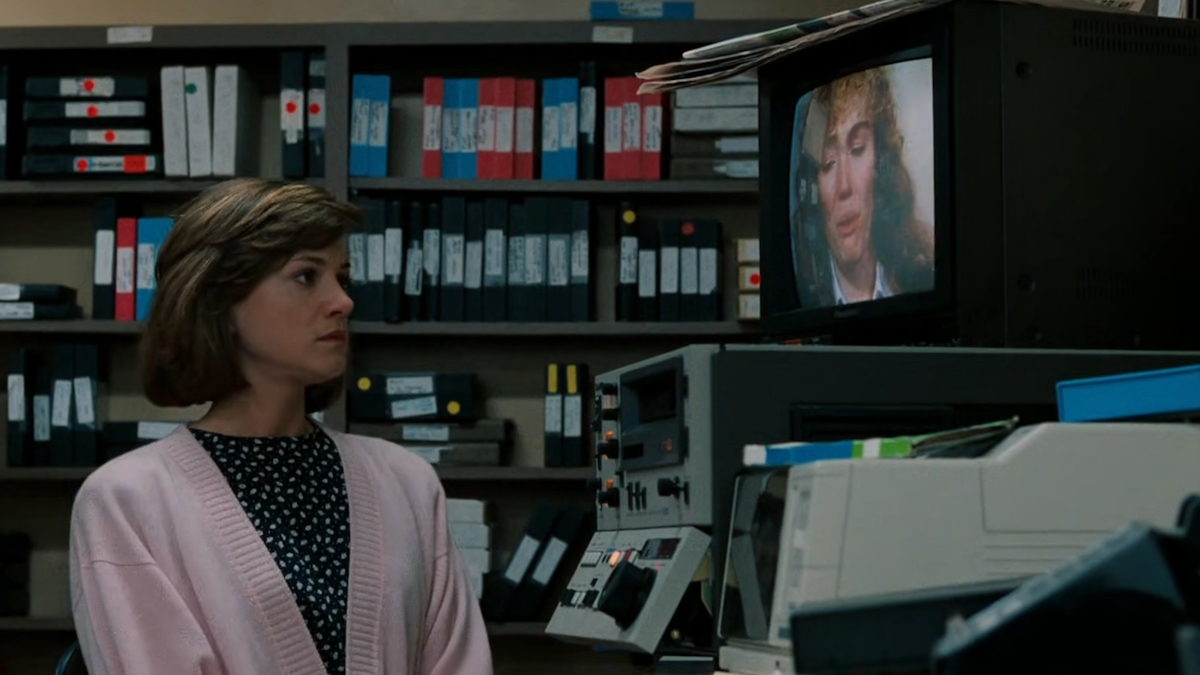
Albert Brooks, Holly Hunter, and William Hurt star in this delicious romantic comedy set in the bustling world of television news. With the imminent erosion of intelligence in favor of sensationalism in news journalism, three people navigate the changing landscape while also navigating their own feelings for one another. Though released far before the internet and social media was common in our everyday lives, its foreboding warning against the dismantling of meaningful journalism never fully eclipses the breezy and juicy romance at its heart.
6. Scarface (1983)
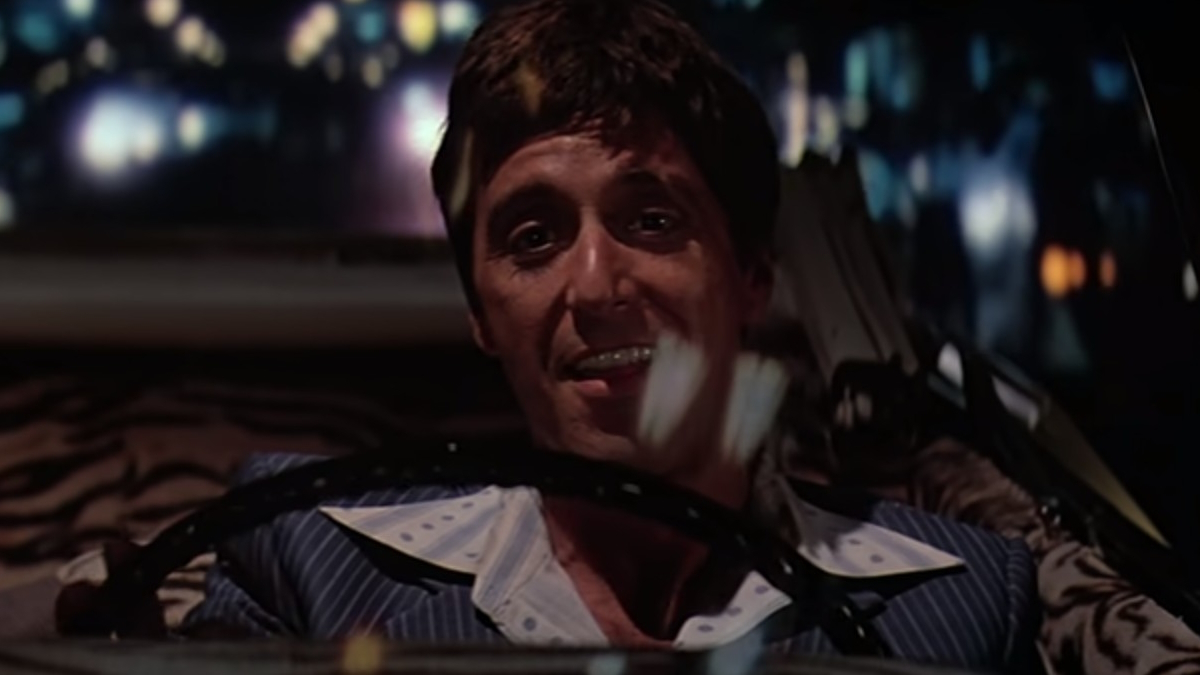
Tony Montana told us “The world is yours,” and we believed him. In this story about the perils of chasing the American dream, the decorated Al Pacino plays Tony Montana, a Cuban immigrant who amasses power, influence, and fortune from cocaine drug trafficking in sunny Miami. Directed by Brian de Palma and composed by legendary Giorgio Moroder, Scarface is a monumental classic that not only influenced what we think living large looks like, but stands to warn us about flying too close to the sun.
5. Dirty Dancing (1987)
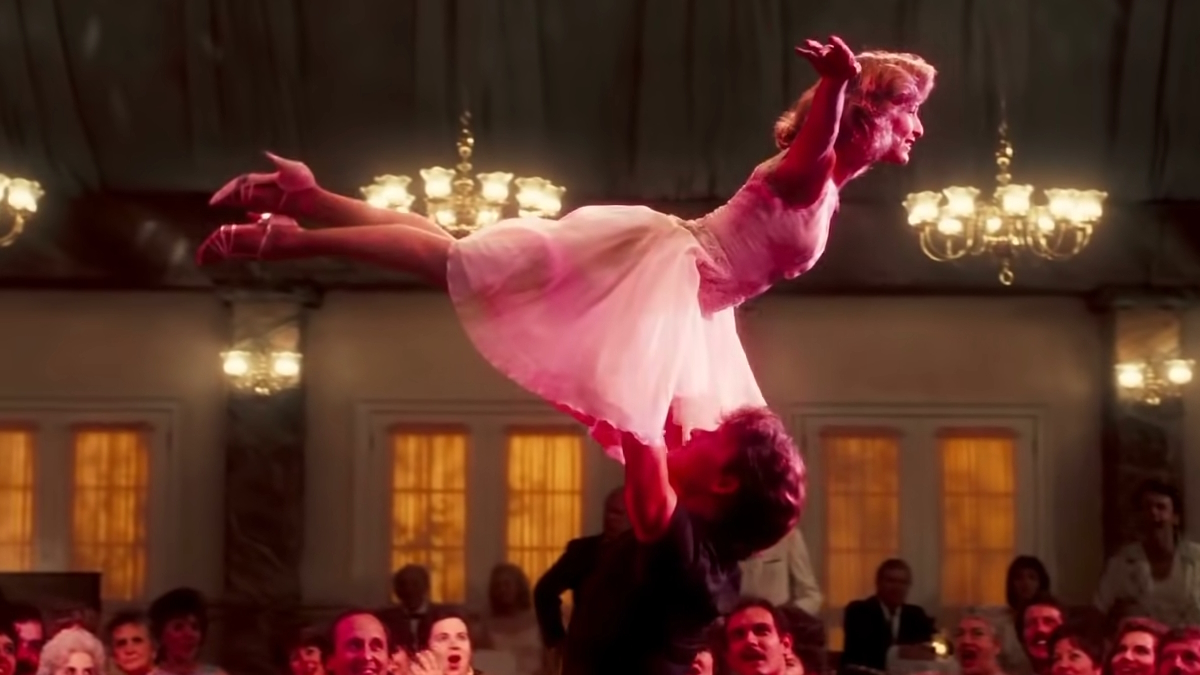
In Dirty Dancing, from director Emile Ardolino, Patrick Swayze and Jennifer Grey co-star in the ultimate star-crossed romance since Romeo & Juliet in its story about a wholesome 17-year-old girl from an affluent family, Baby (Grey) who finds herself in the arms of a working class dance instructor, Johnny (Swayze). Set in the summer of 1963 in the scenic Catskills, Dirty Dancing showed us how we can find love in the unlikeliest of places, one step at a time. We’ve all had the time of our lives.
4. Cinema Paradiso (1988)
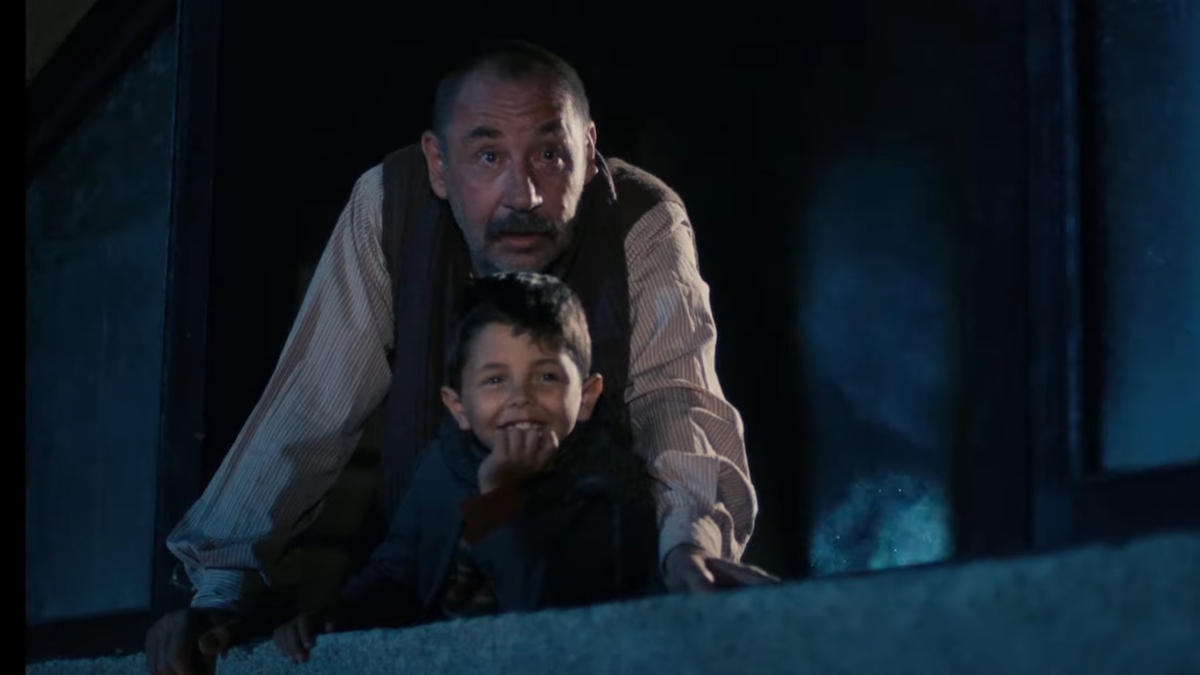
In this sweeping coming of age drama written and directed by Giuseppe Tornatore, a young boy in a small Sicilian town strikes up a friendship with an elderly projectionist in his hometown’s movie theater, the Cinema Paradiso. Told largely in flashbacks, this deeply sentimental celebration about the salvaging powers of cinema reveals how this thing we all love called “movies” fundamentally shapes our being. Movies love nothing more than movies about movies, and Cinema Paradiso is one of the many that stand as a triumph.
3. Blade Runner (1982)
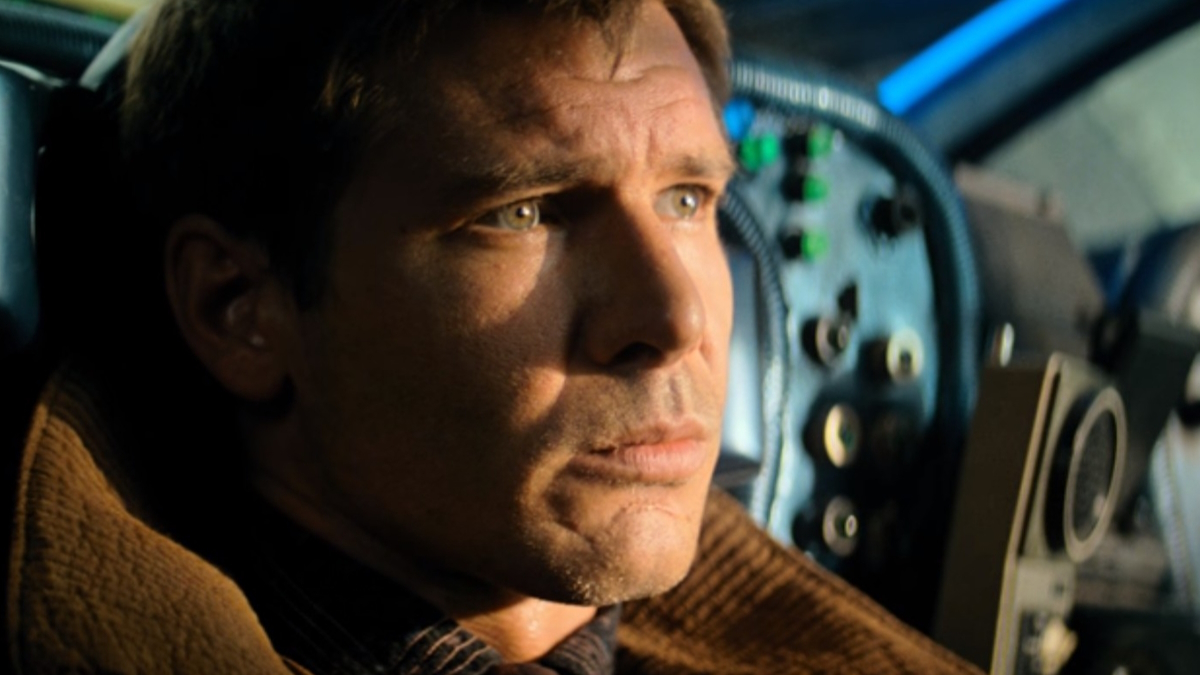
Science fiction exploded in the 1980s, but few feel as fully realized as Ridley Scott’s wildly influential Blade Runner, where Harrison Ford plays a bounty hunter of android “replicants” but questions his own nature. While the movie underperformed and the theatrical version released in 1982 doesn’t reflect Scott’s complete vision – that wouldn’t happen until years later, in 2007 – Blade Runner has nonetheless shaped the look and ambiance of science fiction for generations. From its bleak and dismal urban sprawls, packed shoulder to shoulder with restless people, all lit by obnoxious neon, Blade Runner ominously shows what our future could have looked like in 2017 – and what it still might, if we’re not careful.
2. The Empire Strikes Back (1980)
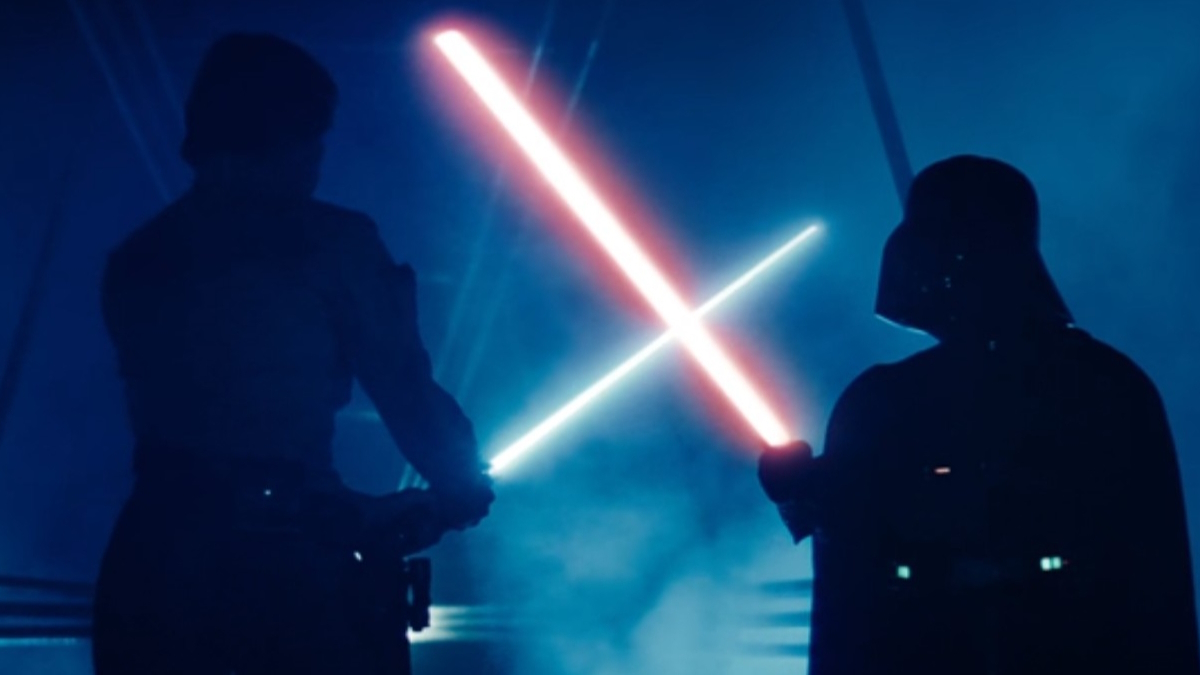
The 1980s proved sequels don’t have to be second rate derivatives of the original, and no sequel proved that better than Star Wars’ own, The Empire Strikes Back, from director Irvin Kershner. Following up the events of the original, now titled A New Hope, The Empire Strikes Back sees Luke Skywalker (Mark Hamill) separated from the Rebellion as he trains with the elusive Yoda in the ways of the Jedi. Bigger and somehow better than Star Wars in every way, The Empire Strikes Back laid the foundation for what all sequels should do, being an expansion – and not a pale imitation – of what made the preceding movie so memorable.
1. Top Gun (1986)
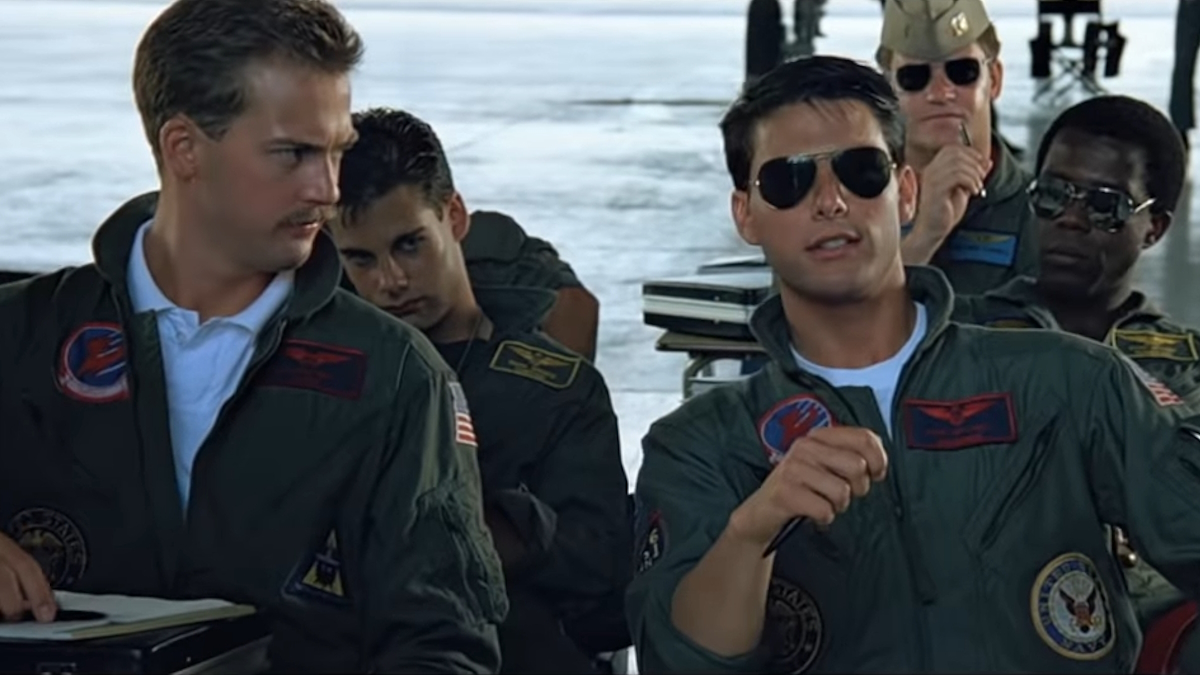
Needless to say, the 1980s are crammed full of classics. Directors like Steven Spielberg, James Cameron, Martin Scorsese, and John Carpenter all helmed mighty influential movies that defined the decade. But no movie single-handedly summarizes the era and foreshadows the future quite like Top Gun. Tony Scott’s game-changing summer blockbuster, released in May 1986, solidified everything we expect now in major releases when the air is hot and we seek shelter in the cool dark embrace of the theater. In its story about a hotshot U.S. Navy pilot, Scott’s film – starring Tom Cruise, Val Kilmer, and Kelly McGillis – stands for everything we love about the movies, and its illusive power to make us feel like we’ve entered the danger zone.


.png?w=600)




